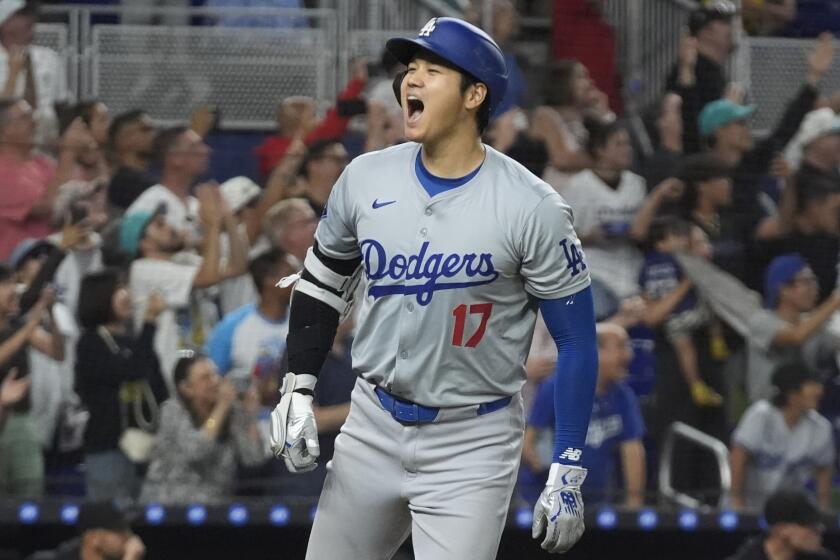Supreme Court rules 9-0 against NFL in antitrust case
The National Football League is not a single business shielded from U.S. antitrust laws, the Supreme Court ruled Monday, dealing a setback to sports leagues that seek to closely control the marketing of their teams and their spin-off merchandise.
The 9-0 ruling leaves the owners of most pro sports teams subject to being sued if they agree among themselves to restrict competition between the teams over the sale of merchandise. The ruling reinstates an antitrust suit filed by a suburban Chicago maker of stocking caps that lost its right to use NFL logos on its caps.
Ten years ago, the NFL gave Reebok an exclusive license to sell caps and hats with team logos. American Needle, the suburban Chicago firm that lost out to Reebok, contended the deal hurt consumers and competition. Afterward, retail prices of hats jumped, the firm contended.
But a judge in Chicago and the U.S. 7th Circuit Court of Appeals tossed out the antitrust suit on the grounds that the NFL was a “single entity” and cannot be accused of conspiring with itself.
The Supreme Court disagreed and ruled Monday that the NFL owners can sometimes be sued if they conspire among themselves to restrict competition.
“Each of the [32] teams is a substantial, independently owned, and independently managed business,” wrote Justice John Paul Stevens. “Decisions by NFL teams to license their separately owned trademarks collectively and to only one vendor are decisions that deprive the marketplace of … actual or potential competition,” he said.
When the case reached the Supreme Court, the NFL’s players and coaches joined on the side of the cap maker, American Needle. A salary cap provision that limited teams’ pay structures had been part of the NFL collective bargaining agreement since 1994. But that provision expired in March, giving players new freedom to demand higher salaries. If the league were deemed to be a single business, team owners could agree among themselves to a new plan to limit salaries, the players feared. The court’s ruling appears to put those fears to rest.
But the decision is not a total defeat for the NFL either. Stevens said the owners had valid reasons for cooperating on many fronts to assure the success of the league.
“The fact that NFL teams share an interest in making the entire league successful and profitable, and that they must cooperate in the production of and scheduling of games, provides a perfectly sensible justification for making a host of collective decisions,” Stevens wrote.
In the end, the court did not set a clear rule. It said judges must decide whether agreements among the independent teams are reasonable, or instead amount to an unreasonable restriction on competition. The justices sent the case back to Chicago for judges to decide on American Needle’s complaint that the Reebok deal was an unreasonable restriction on competition.
“I think the NFL, frankly, overreached here by seeking what would in effect be immunity from [antitrust] liability by arguing that they were operating as a single economic actor, and the Supreme Court was not convinced of that proposition, said Washington antitrust lawyer Steven G. Bradbury.
Times staff writer Sam Farmer in Los Angeles contributed to this report.
More to Read
Go beyond the scoreboard
Get the latest on L.A.'s teams in the daily Sports Report newsletter.
You may occasionally receive promotional content from the Los Angeles Times.











